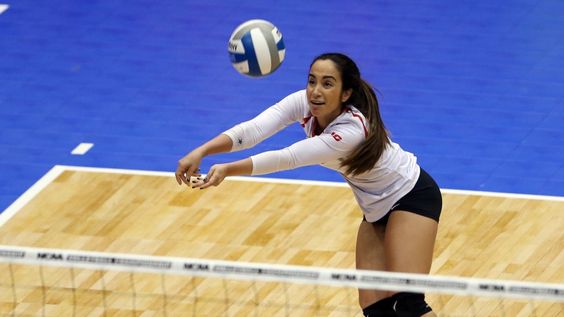What is a DS in Volleyball
The DS, short for Defensive Specialist, is a specialized player in volleyball whose primary role revolves around defensive duties. Unlike other players, the DS primarily focuses on receiving serves and providing quality passes to the setter, ensuring smooth transitions for the team’s offense.
Key Responsibilities of a DS
The DS is tasked with maintaining control and stability in the back row defense. They must be proficient in reading the opponent’s attacks, anticipating plays, and executing precise passes to initiate offensive plays for their team. Read about How Long is a Football Game
Technical Skills Required for a DS
Passing and Defense Techniques
DS players need exceptional passing and defensive skills. They must master various passing techniques such as platform passing, overhead passing, and diving digs to control the ball effectively and prevent it from hitting the ground on their side of the court.

Communication and Coordination
Effective communication and coordination with teammates are paramount for a DS. They must communicate with the setter and other players to ensure seamless transitions and defensive coverage during rallies.
Strategic Importance of a DS in Volleyball Teams
Supporting the Setter
DS players play a crucial role in supporting the setter by delivering accurate passes, allowing the setter to set up offensive plays effectively. Their ability to maintain composure under pressure and execute precise passes greatly influences the team’s performance.
Adaptability and Flexibility
DS players must be adaptable and flexible, capable of adjusting their defensive strategies based on the opponent’s tactics and the flow of the game. Their versatility allows coaches to make strategic substitutions and adapt to different game situations.
Training and Development of a DS Player
Drills and Exercises
Training for DS players involves a combination of technical drills, agility exercises, and simulated game scenarios aimed at enhancing their defensive skills and decision-making abilities under pressure. Discover about Neymar World Cup Wins
Mental Preparedness
Apart from physical training, mental preparedness is essential for DS players. They must possess resilience, focus, and a strong mentality to overcome challenges and perform consistently at a high level throughout the game.
Famous DS Players and their Contributions
Throughout volleyball history, several DS players have left a significant impact on the game with their exceptional skills and contributions to their teams’ success. Players like [insert names] have showcased the importance of the DS position in elite-level volleyball.
Challenges Faced by DS Players
Physical Demands
DS players endure rigorous physical demands, including quick reactions, agility, and endurance, as they cover large areas of the court during defensive plays.
Mental Pressure and Focus
The DS position requires intense focus and mental toughness to withstand pressure situations, make split-second decisions, and maintain consistency in performance throughout the game.
The Evolution of the DS Position
The role of the DS has evolved over time, influenced by changes in game strategies, rules, and player specialization. Modern volleyball teams emphasize the importance of versatile DS players who can contribute both defensively and offensively, adding depth to their lineup.

Conclusion
In conclusion, the Defensive Specialist (DS) plays a vital role in the success of volleyball teams worldwide. Their defensive prowess, strategic contributions, and ability to adapt to various game situations make them indispensable assets to their teams. As volleyball continues to evolve, the importance of the DS position remains unwavering, shaping the dynamics of the game.
FAQs
- What are the primary responsibilities of a DS in volleyball?
- The primary responsibilities of a DS in volleyball include maintaining control and stability in the back-row defense, receiving serves, providing quality passes to the setter, and supporting defensive coverage during rallies.
- How does a DS player contribute to the team’s defensive strategies?
- DS players contribute to the team’s defensive strategies by reading the opponent’s attacks, anticipating plays, and executing precise passes to initiate offensive plays. They also communicate effectively with teammates to ensure seamless transitions and defensive coverage.
- What are some essential skills required for a successful DS player?
- Essential skills for a successful DS player include exceptional passing and defensive techniques, effective communication and coordination with teammates, adaptability, mental toughness, and the ability to perform consistently under pressure.
- How do DS players communicate effectively with their teammates during matches?
- DS players communicate effectively with their teammates during matches by using verbal cues, hand signals, and non-verbal communication to coordinate defensive strategies, anticipate plays, and maintain cohesion on the court.
- What are some common challenges faced by DS players, and how do they overcome them?
- Common challenges faced by DS players include physical demands such as quick reactions, agility, and endurance, as well as mental pressure and the need for intense focus. They overcome these challenges through rigorous training, mental preparation, and developing resilience to perform at a high level consistently.







